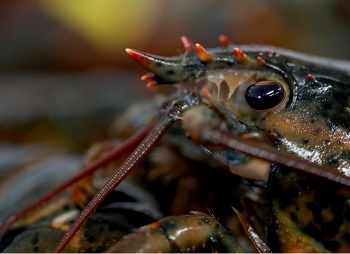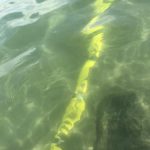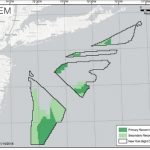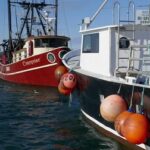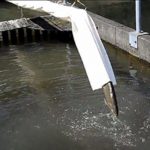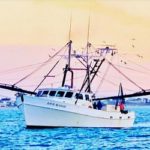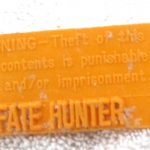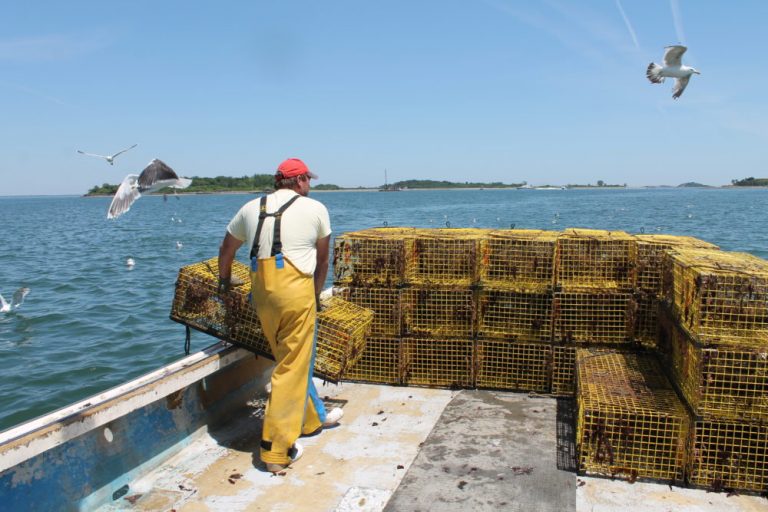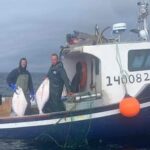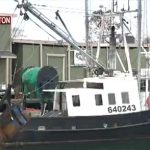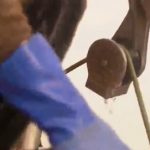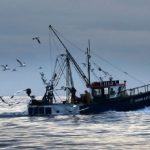Tag Archives: Sipekne’katik Band

The ‘Lobster Trap’, Part II – Protests and Prayers
When she heard the news, in the middle of her shift selling tickets at the ferry terminal, Cathy Watt broke down in tears. The U.S. government had just ordered the unprecedented closure of a 1,000 square-mile swath of ocean off Maine’s coast to traditional lobster fishing for four months a year, starting in October. It was a crushing consequence of climate change: Warming oceans have hastened an endangered whale’s journey to the brink of extinction, and now Maine fishermen would pay the price. photos, video, part II of a series, >click to read< 09:49 ‘The Lobster Trap’ >click to read<

Zero chance of the UN intervening with peacekeepers to monitor Sipekne’katik lobster fishery
Queens University political scientist John McGarry said Chief Mike Sack might have “good political reasons” for making the request, but it won’t happen. “I’ll just put it bluntly: there is zero chance of the UN intervening with peacekeepers,” he said. McGarry said that’s due to several reasons, including that Canada would have to agree to the request and then invite peacekeepers in. “The Canadian government is not going to consent to that because that would mean it was incapable itself of looking after this issue, and that would be a profoundly embarrassing abdication of its responsibilities as a government, so it’s not going to agree to it,” he said. Failing that, the UN Security Council would have to pass,,, >click to read< 07:20
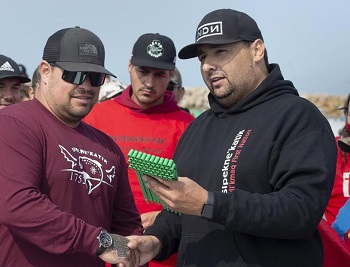
Mi’kmaq Chief involved in Nova Scotia lobster fishery dispute re-elected
It will be a third term for Chief Mike Sack in the community of Sipekne’katik, formerly known as Indian Brook, located about 65 kilometres north of Halifax. The returning officer of the Confederacy of Mainland Mi’kmaq says Sack won more than 72 per cent of the vote. Heather Knockwood and Kim Paul were the other candidates for chief in the community of about 2,770 people. Sack gained national prominence after he officially opened a “moderate livelihood’’ fishery for his community on Sept. 17 in Saulnierville, N.S. >click to read< 09:27
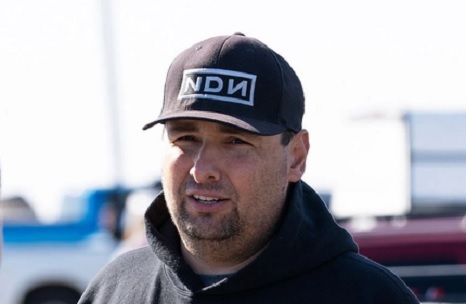
Chief Mike Sack: The face and voice of Mi’kmaq lobster fishing that is met with ire and violence
Monday is election day, when the Sipekne’katik band will elect a chief to lead the province’s second-largest Mi’kmaq community for the next two years. Chief Mike Sack is on his way to Digby. In his pickup, skirting along Highway 101, it is two and a half hours of picturesque driving from his band’s reserve in central Nova Scotia to communities on the province’s southwestern coast, where lobsters grow plump and delicious in St. Marys Bay. While he is well-known in his community, most in Canada only recently noticed Sack, through the news and, for a certain demographic, online memes, both heroic and horrific, sparked by alarming events as the lobster dispute turned violent. >click to read< 18:50
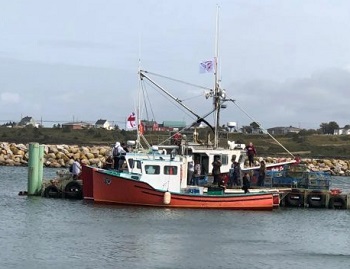
A new current in the Nova Scotia lobster dispute – Local First Nation says Sipekne’katik did not consult them before launching
The ongoing dispute over Indigenous fishing rights in Nova Scotia has seen a new player emerge to add to the troubled waters. This time however, it might be seen as veiled criticism by one band of the actions of the other.,, The new player in the dispute is the local Bear River Mi’kmaw band who are actually the band closest to St Mary’s Bay in southwestern Nova Scotia. On the other hand, the Sipekne’katik who are at the heart of the dispute, are based over 250 km away in the central part of the province. >click to read< 14:30
Mi’kmaw band raises concerns about Sipekne’katik lobster fishery – In a letter sent to media and addressed to federal Fisheries Minister Bernadette Jordan, Sipekne’katik Chief Mike Sack and other Indigenous leaders, Bear River Chief Carol Dee Potter said her community has fished St. Marys Bay “since time immemorial,” but they’ve recently been disrupted. “Over the last few weeks, our fishers have been forced out of this area due to the ongoing dispute,” >click to read<
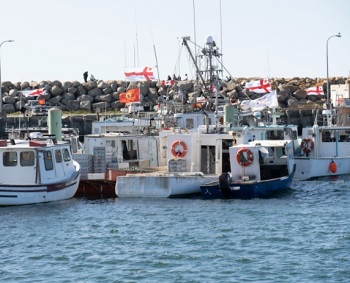
Sipekne’katik seek injunction from Nova Scotia Supreme Court to end threats, interference in lobster fishery
The Sipekne’katik band is seeking a temporary court injunction to end blockades, interference and threats over its lobster fishing in southwest Nova Scotia. The band applied to Nova Scotia Supreme Court Wednesday for an injunction to prohibit anyone from trying to stop members from accessing two wharves in the region, in Saulnierville and Weymouth, and a lobster pound it uses in New Edinburgh. The band also seeks to end interference at sea, where it says traps have been damaged, destroyed or taken by non-Indigenous fishermen. >click to read< 14:01

Commercial fishermen rally in Digby, Ex-fisheries minister calls for pause on out of season fishing and protests
Several hundred commercial fishermen held a rally Tuesday in Digby, N.S., as tensions continued to simmer over expanded Mi’kmaw lobster fishing in the area. There were calls for a pause on all out-of-season fishing by First Nations and an audit of commercial licences awarded to bands following the 1999 Marshall decision that recognized their right to fish for a moderate livelihood. Afterward, some fishermen gathered outside a lobster facility in New Edinburgh suspected of buying lobster harvested by Mi’kmaq fishermen when the season is closed. There was an RCMP presence at the rally, which was held on the eve of the Wednesday opening of commercial fishing in Lobster Fishing Area 35 in the Bay of Fundy. >click to read< 22:03
Indigenous, commercial lobster fishermen clash in Digby County
 The Sipekne’katik Band is accusing southwestern Nova Scotia lobster fishermen of throwing native fishing rights overboard. “There has been protesting and people are interfering with my people exercising their rights,” Chief Mike Sack said Thursday of a fleet of about 10 boats operated by the band that has been fishing lobster from different wharfs in St. Mary’s Bay in Digby County. “It has been escalating quickly over the last little bit.” Sack said local non-native fishermen from Lobster Fishing Area 34, the most lucrative lobster waters in Canada that encompasses an area from Baccaro Point to just below Digby, do not recognize native treaty rights to fish out of season. click here to read the story 22:57
The Sipekne’katik Band is accusing southwestern Nova Scotia lobster fishermen of throwing native fishing rights overboard. “There has been protesting and people are interfering with my people exercising their rights,” Chief Mike Sack said Thursday of a fleet of about 10 boats operated by the band that has been fishing lobster from different wharfs in St. Mary’s Bay in Digby County. “It has been escalating quickly over the last little bit.” Sack said local non-native fishermen from Lobster Fishing Area 34, the most lucrative lobster waters in Canada that encompasses an area from Baccaro Point to just below Digby, do not recognize native treaty rights to fish out of season. click here to read the story 22:57






